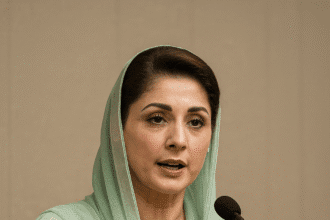The much-awaited Prime Minister’s Youth Laptop Scheme, designed to provide laptops to public university students across Pakistan, faced a staggering 251-day delay in securing PC-1 approval, official records reveal.
Frankly, this isn’t just bureaucratic red tape — it’s a textbook case of how institutional infighting and procedural backlogs can derail youth-focused projects.
Where Did All That Time Go?
The scheme was announced back in July 2023 by Prime Minister Shehbaz Sharif with big promises: empowering students, enhancing digital learning, and bridging Pakistan’s tech gap. But here’s how the approval timeline dragged out:
- 73 days in technical assessment
- 76 days in financial evaluation
- 59 days in further technical review
- 47 days in bid submission
- 45 days for contract finalization
- 19 days for steering committee notification
- 7 days ironing out standard bidding documents (SBD)
So yeah, while students eagerly waited, files bounced between the Planning Commission, the HEC, the PM Secretariat, and the Executive Committee of the National Economic Council (ECNEC).
HEC’s Internal Fallout
Adding fuel to the delay, tensions erupted inside the Higher Education Commission (HEC) itself. According to insider sources, a simmering rift between HEC Chairman and Executive Director Zia-ul-Qayyum came to a head.
Honestly, the laptop scheme’s sluggish progress became a battleground issue, ultimately leading to Zia-ul-Qayyum’s removal from his post. Reports suggest the two senior officials had been locked in a months-long cold war over the management and direction of the project.
Student Applications & What’s Next
Despite all the drama, applications from students were eventually opened in late April 2025. The original deadline of May 20 was later extended to June 1, thanks to overwhelming demand and backend hiccups.
Currently, HEC is processing applications and preparing merit lists. If things stay on track, laptop distribution is expected to kick off by July 2025 — almost a full year after the scheme was first promised.
The Bigger Picture
Let’s be real: while the scheme’s goal — enhancing digital access — is commendable, the delay exposes deeper structural issues in Pakistan’s governance system. Students are left waiting, hopes hanging, while institutions tussle over paperwork and power.
One can only hope the next phases — procurement, distribution, and after-sale support — don’t hit similar bureaucratic speed bumps.














